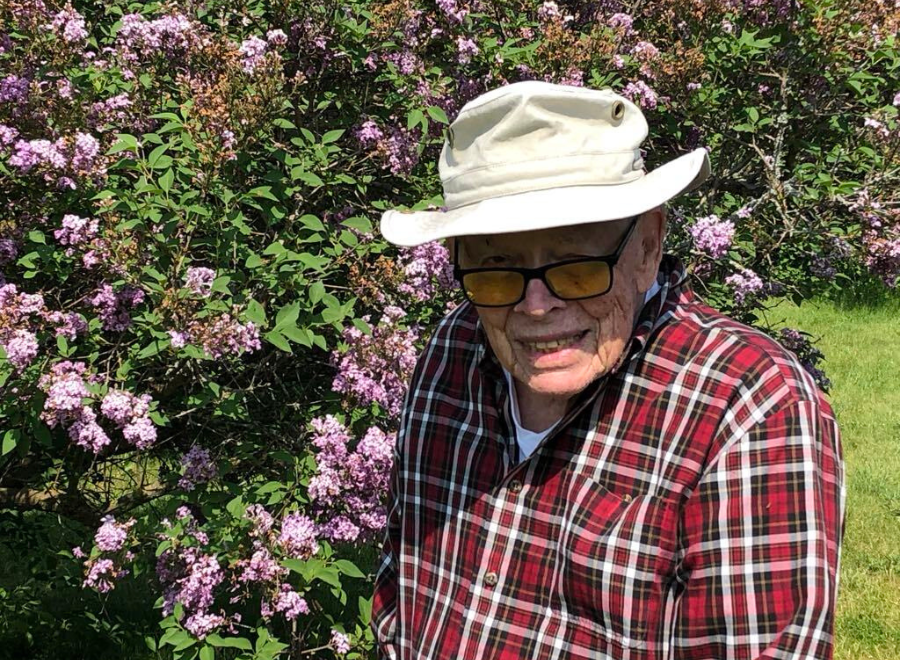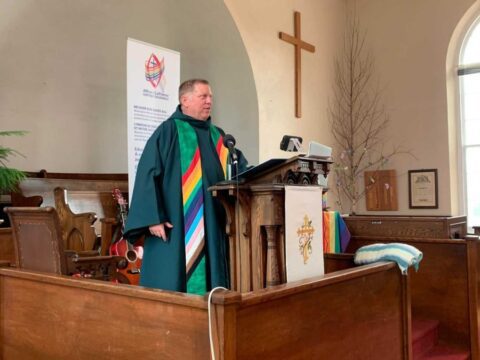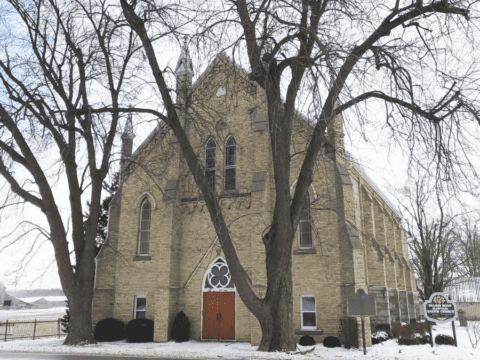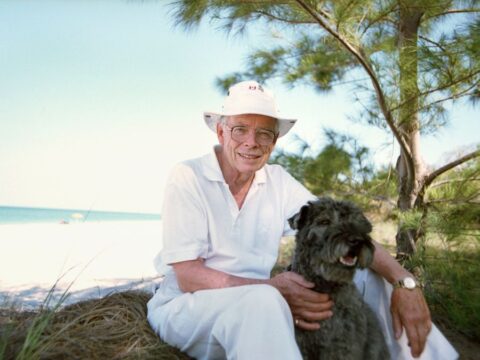To read more from other living moderators, you can click here.
Very Rev. Bruce McLeod was the 25th moderator of The United Church of Canada from 1972 to 1974 and later served as commissioner of the Ontario Human Rights Commission as well as director of the Canadian Civil Liberties Association. Erin Pepler sat down with McLeod, now 96, at his home in Guelph, Ont., to discuss faith, social justice, and using disappointment as motivation in challenging times.
You may unsubscribe from any of our newsletters at any time.
Erin Pepler: You were involved in interfaith relations and community outreach for decades. Why was that important to you?
Bruce McLeod: I grew up in Deer Park [United] Church, whose minister was very broad in his theology and would also preach at Holy Blossom synagogue. So, from the beginning, as a teenager, I was exposed to that kind of teaching. “God” itself is a terrible word; it’s a reduction to a single syllable for a reality that is beyond all words. In theological school, you reduce it and then explain it and put it into patterns, and that never appealed to me. This is an amazing world, which I see and celebrate, though confined in my chair now. Those trees there, for instance, are in a natural cycle of change without complaint. They bend gracefully before their passionate path in the world, and I learn a lot from that.
The world is not empty and purposeless. There’s something going on here—like [Rev.] Herb Breithaupt used to say, More than meets the eye. You’ll run into that at the birth of a new baby, or some moving experience you have, maybe out in the woods, and you’re certainly aware that there is a presence in the world. And it is not a neutral presence! It’s a presence that got the whole thing rolling, out of love, and delighted in what was made. That presence is still here, and it knows our names, and sometimes wakes us in the night and says, Why aren’t you up and doing?
I used to run into that feeling in Hamilton, when I was there from 1965 to ‘70. There were a lot of shut-ins in the congregation who rented these little attic places, old guys like me now, and I’d visit them periodically. The stairs would smell of urine, and the visit wasn’t always a pleasant prospect. But I knew the importance of visiting them. God was almost like a smile and a hand on my back saying, You get up those stairs. That’s why you’re here.
More on Broadview:
-
United Church moderators reflect on the past, present and future
-
United Church unveils colourful photo reimagining ‘Last Supper’
- My Easter dream for the United Church: to centre children and youth
EP: You’ve always been progressive—speaking out against homophobia and racism, shining a light on homelessness. As moderator, you expressed support for women having bodily autonomy. How much pushback did you get for your views, and how did you respond to it?
BM: Just by going ahead and doing it anyway. Your grandfather [Rev. Don Gillies] and I shared a lot of those characteristics. We’d go to civil rights marches together. There was a woman who used to advertise orange juice [Anita Bryant], who was really homophobic. She’d come through Toronto, and Don and I would sometimes go to her events to get material because, oh, she was terrible. People would say, “You aren’t going to that!” and we’d say, “Yes, that’s where we’re going tonight!” It was encouraging to have a partner in crime.
One of the many frustrations of being 96 is that you can only watch it from afar. I loved to be out there [protesting] in the city square, speaking up at city hall on various issues, or staying at the men’s hostel overnight*. I get frustrated that I can’t do that anymore, but you know what I think of? Bishop Desmond Tutu came to Metropolitan United [in Toronto] one night and spoke in a marvelous way. There was a bomb threat, and the police said I had to decide whether the meeting would go on. So, I asked Tutu, and he said Oh yes, we’ll go on, we have these all the time, okay? Then he spent the first five or 10 minutes of his speech thanking people, saying I know you pray for me, and you have no idea how important it is to me to know I’m being held up by your prayers. So I think of that, and I pray.
(*In 1987, McLeod stayed anonymously at the Seaton House men’s shelter in Toronto. He wrote a series of op-eds on the poor conditions he encountered in the shelter, advocating for better.)
EP: It’s hard not to feel disheartened about the state of the world today. I’m thinking of what’s happening in Gaza, Ukraine and Sudan, as well as the hateful rhetoric in the U.S. right now, which we see more subtly in Canada, too. It’s been over 50 years since you were moderator, and I wonder if you feel like we’ve made progress. Has there been a slide backward or have you seen this kind of push and pull before?
BM: I’d lean to the second conclusion you offered there. I think it’s always been like this, to some extent. Even in the Bible, you know, after God creates the earth? He looks around and behold, it was very good—but a couple of chapters later, God was sorry that he had ever made man. And I believe in the sorrow of God. I think that presence I was talking about before, that spirit is very disappointed with what we’ve done with a very good creation. But that disappointment motivates us sometimes, if we’re in the right mood, if the spirit has touched us to go do something about it.
There have always been terrible things happening—it’s a wonder anybody believes in God at all! But they do. And the hopeful thing is that God’s disappointment will still motivate some of us to remember the very good possibilities. As Martin Luther King Jr. said, the arc of [the moral universe] is long, but it bends toward justice. Not over the last week or the last 10 years, maybe, but over the long haul. Slavery is illegal now. There’s more respect for women—it’s not complete, but it’s bending towards justice. I want to be on that journey, on that bend.
People might wake up and use the short, glittering time they’re here for good, rather than for making the right stock market moves or something. What a bore that is.
EP: What does faith mean to you today?
BM: It means taking seriously this spirit that is still creating. I don’t think it was just a random collision of molecules and atoms. If so, that was the most amazing random act in history—I mean, to get the balance of gases exactly right so we can breathe and talk. There’s lots of evidence of how wondrous that is. We used to say that every new baby is a sign that God hasn’t given up on the world. There’s a snippet from [Kurt] Vonnegut that welcomes babies and ends with something like, “and for God’s sake, be kind.” And that’s what people are meant to be—kind to others.
This interview has been condensed and edited for clarity.
***
Erin Pepler is a freelance writer and the author of Send Me Into The Woods Alone: Essays on Motherhood. She lives in the greater Toronto area with her family.












